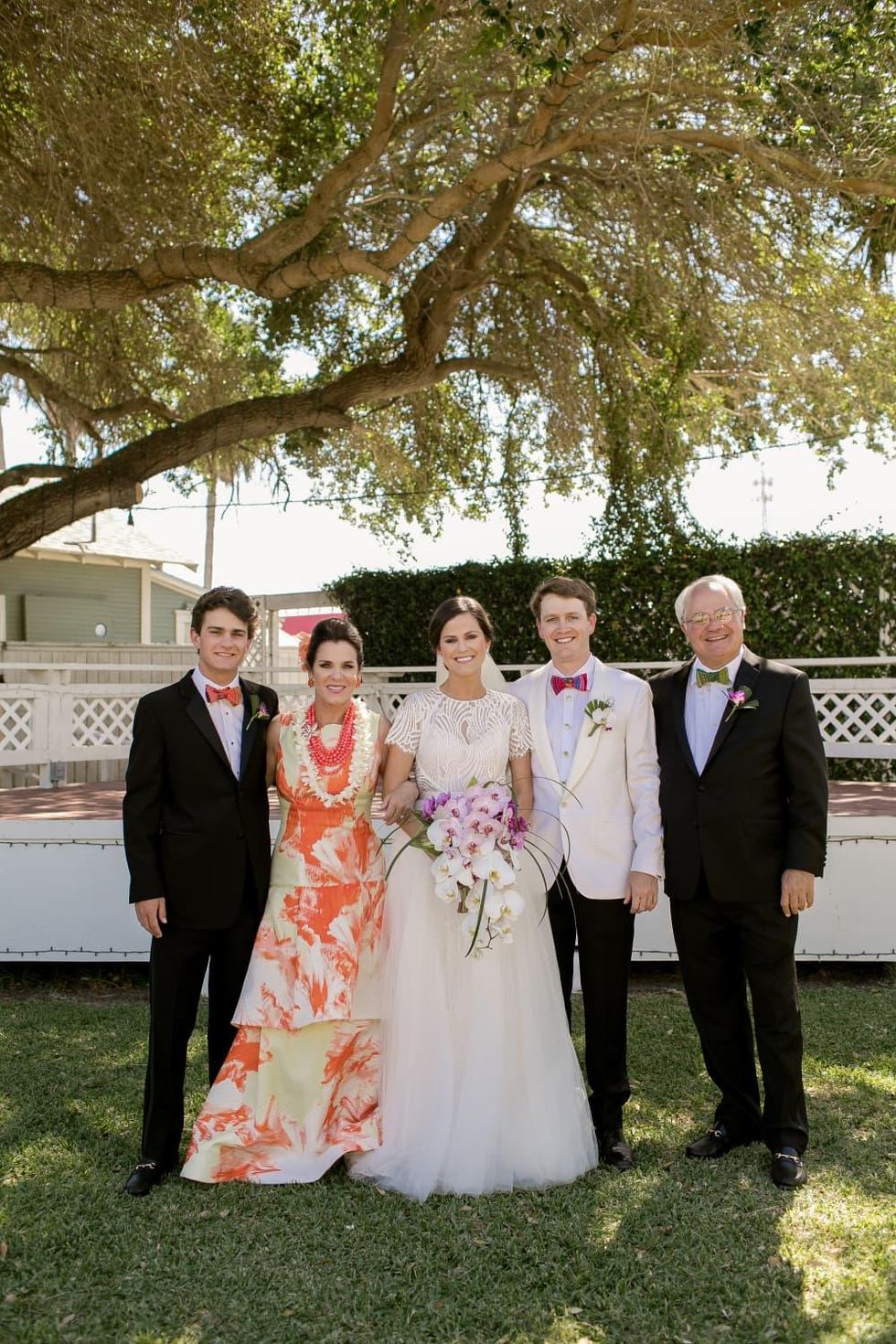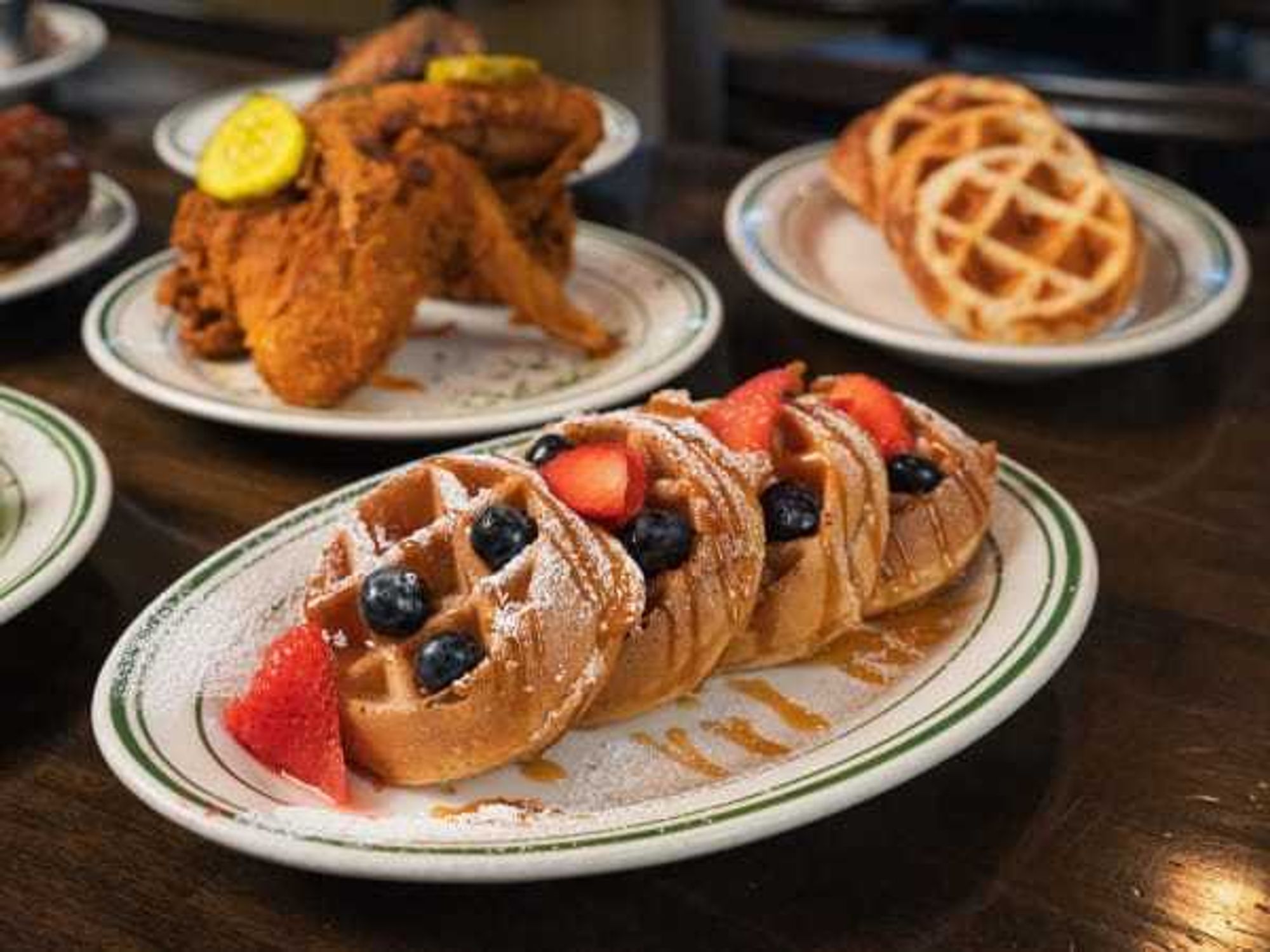Love At First Sight
Blind date leads couple down the aisle in a tropical Texas beach wedding
It’s often said of short engagements that lead to long-standing marriages, when you know, you just know. That theory certainly applies to Lila and Mitchell Malone. It took just one blind date and a weekend getaway three months later to Port Aransas for the couple to realize that they indeed were in the know about the rest of their lives together.
New to Houston and working as head design associate and project manager for Creative Tonic Design, Lila, a San Antonio native, and Mitchell met at Hugo’s for dinner on a steamy July evening in 2015 and by the end of the evening, Lila knew this relationship was a “no brainer.” Three months later, on a weekend trip to Port Aransas, surrounded by the gentle waves and colorful sunsets rooted in Lila's childhood, the couple realized it was time to take their relationship to the next level.
“We fell in love that weekend. I knew he wanted to marry me. There was no option,” Lila said. “My mother grew up going to Port Aransas and we spent summers there. I knew we would get married there.”
This island that housed so many childhood memories became the next chapter of Lila’s adulthood, and she and her mother, Bonnie Chumbley, also a designer, set to work creating a vibrant, fun, and meaningful celebration. The mother/daughter duo capitalized on the island’s natural assets for decor and design, adding their own touches in everything from tabletops to floral.
“My mom is the most creative person I know, so we just took this head-on,” Lila said. “We went for fun and a less-is-more feel. We had these beautiful palms, sand dunes and the beach around us, so we worked with that.”
There was no special instruction on the wedding invite regarding attire, but the couple’s friends and family knew them well enough to eschew the LBD and add their own pops of personality to the celebration in bold, tropical prints fit for a May Texas beach wedding.
One look at the couple’s wedding pictures and the happiness is infectious, but look closer and there are special moments captured on film honoring the memories of Lila’s brother and Mitchell’s mother. The couple chose a glorious confetti release as a way to include them in their day.
“They were fireworks in our lives, with personalities that lit up a room. It was an ode to them and my favorite moment of the whole weekend,” Lila said.
A tasty wedding highlight included lobster enchiladas from Lisabella's Bistro & Bar in Port Aransas. The restaurant is owned by family friends and brought back the dish at Lila’s request. It was one of the little touches that made a big impact.
“At the end of the day, it was Port Aransas. We made it fun and beautiful right where we were,” Lila said.
After all, when you know, you just know.
• Rehearsal Dinner Venue: The Tarpon Inn
• Rehearsal Dinner Dress: Hand painted dress Lila found in a small boutique in San Miguel de Allende, Mexico
• Reception Venue: Palmilla Beach Resort and Golf Course
• Ceremony Venue: Palmilla Beach Resort and Golf Course
• Photographer: Matthew Alvarado, Beloved Photography
• Florist: Ray Briones Flowers
• Dress: Watters
• Shoes: J. Crew
• Groom's Tux: J. Crew
• Wedding Planner: Wedding Planners Inc. Robin Waters for logistics the day of the wedding
• DJ: Band - Dysfunkshun Junkshun
• Ceremony Music: John Amundsen, son of a family friend
• Cocktail Hour Music: Dysfunkshun Junkshun


 Grand Lux Cafe is known for its baked-to-order desserts. Grand Lux Cafe/Facebook
Grand Lux Cafe is known for its baked-to-order desserts. Grand Lux Cafe/Facebook